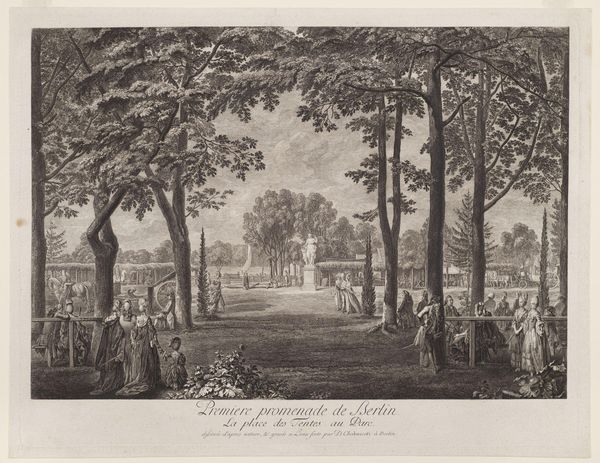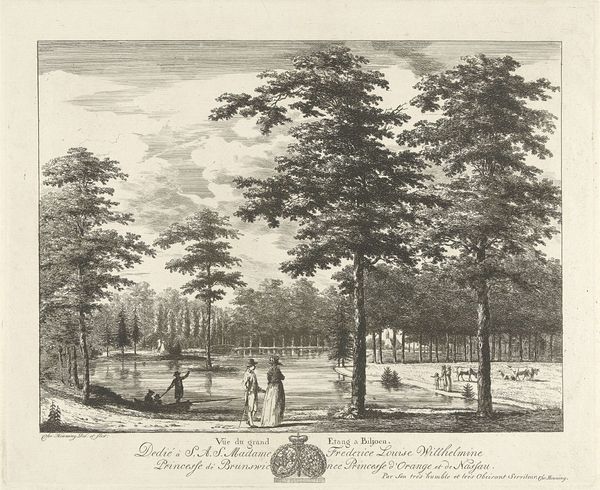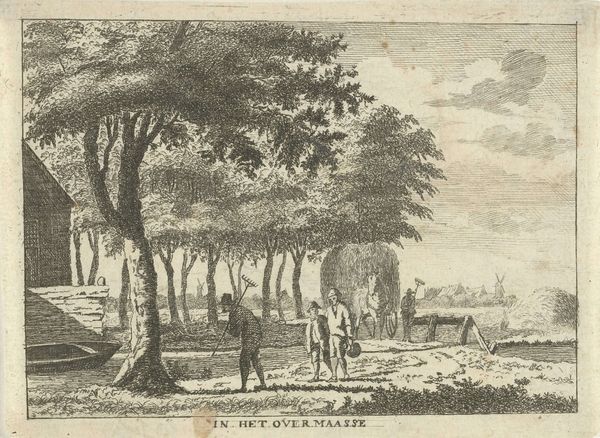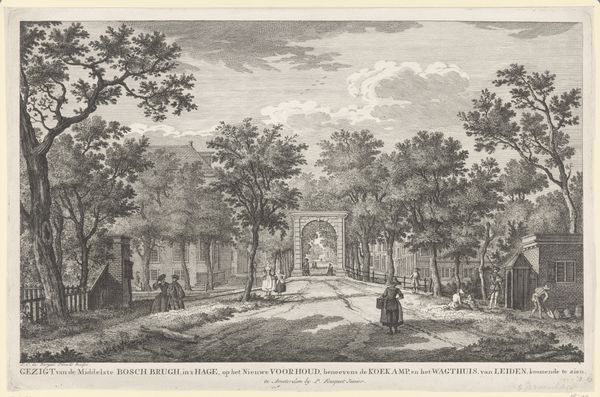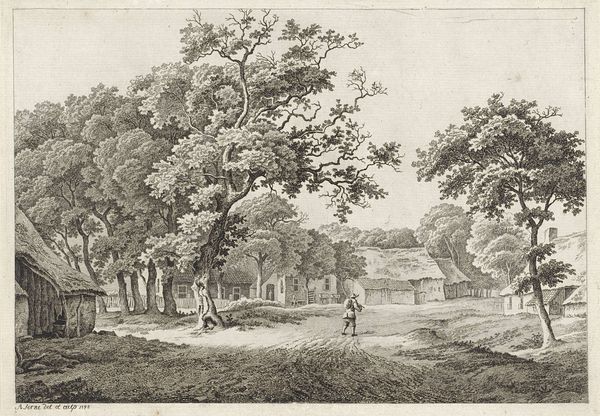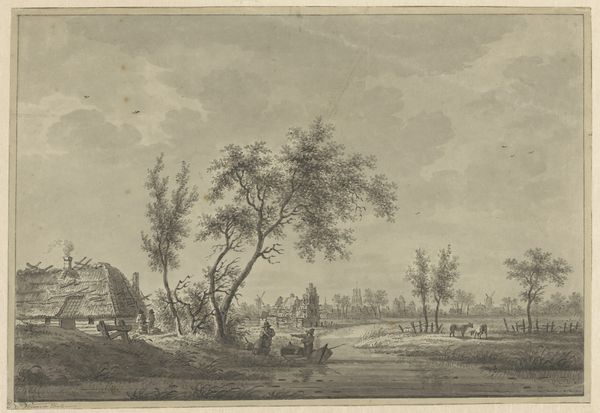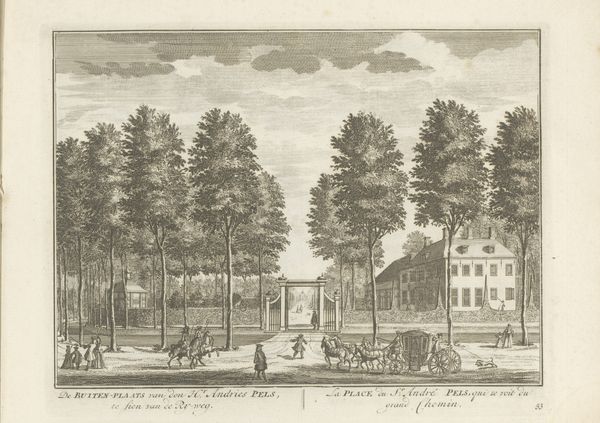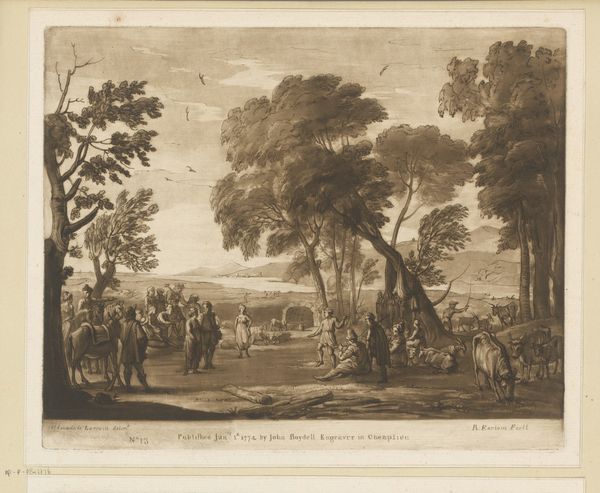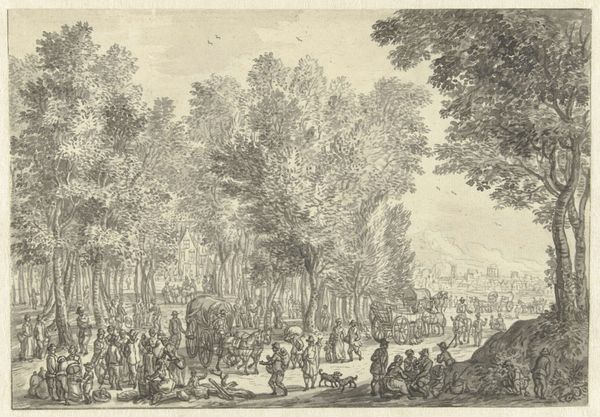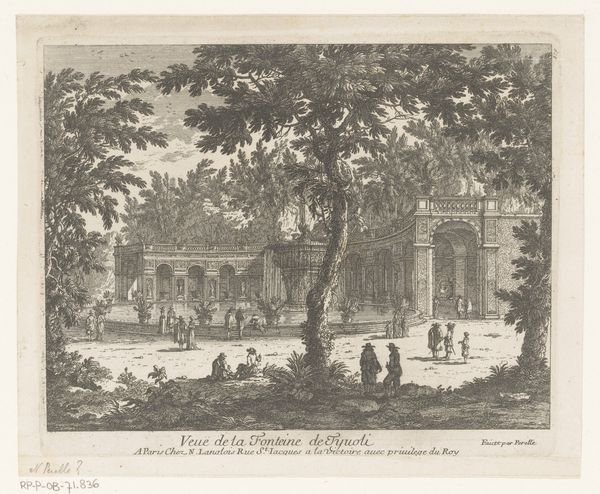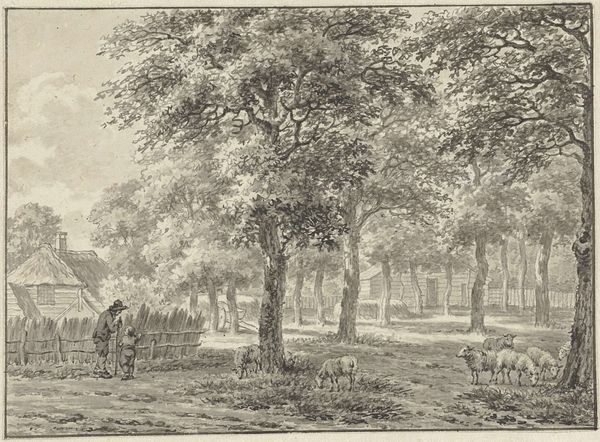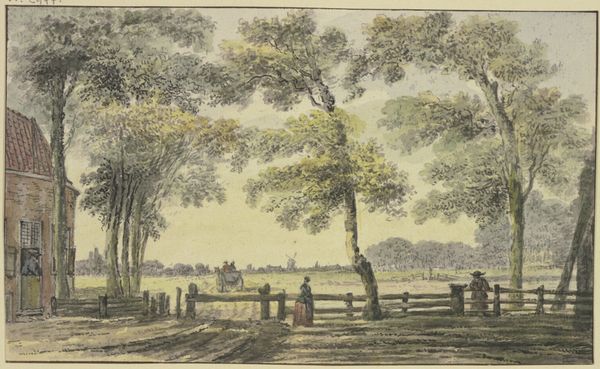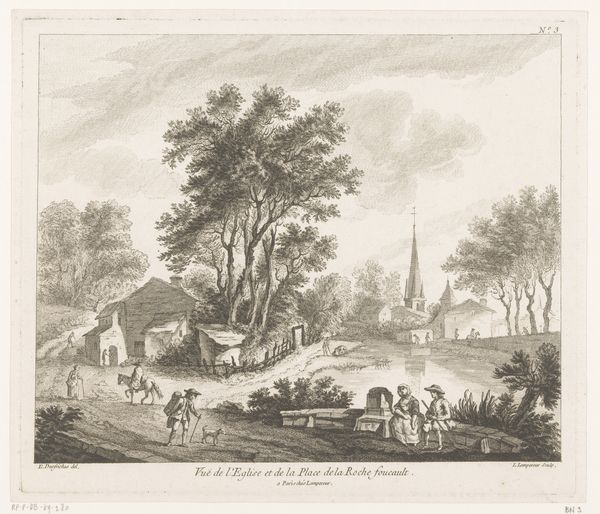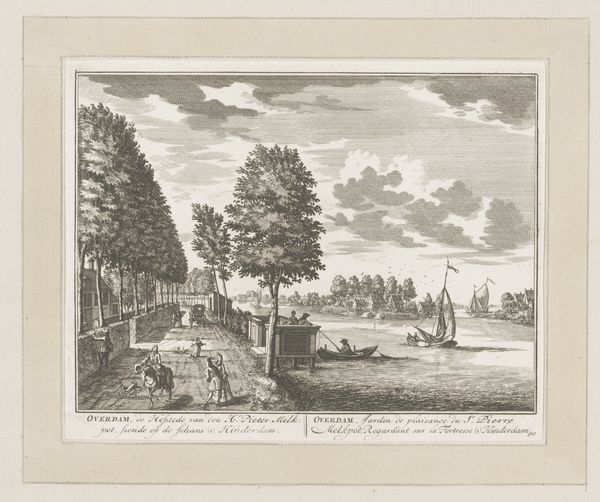
print, engraving
#
neoclacissism
# print
#
landscape
#
pencil drawing
#
genre-painting
#
engraving
Copyright: National Gallery of Art: CC0 1.0
Daniel Nikolaus Chodowiecki's "Premiere promenade de Berlin" captures a scene brimming with symbols of civic and social order. The act of promenade itself, framed by regimented trees and architectural structures, reflects a controlled, ordered society. Note how the figures are arranged—their postures and interactions speak to their roles and status. Such scenes echo across centuries, recalling the formal gardens of Versailles. Yet, they also foreshadow the alienated masses in later industrial landscapes. Consider the recurring motif of boundaries: fences, pathways, and the very edges of the print. Boundaries which, throughout history, have served not only to delineate physical space but also to define social hierarchies and psychological limits. These motifs reflect our subconscious need for order and containment. We are reminded that every constructed space, every social gathering, is laden with the complex interplay of power, control, and the longing for a structured existence. These themes are not merely historical curiosities but resonate deeply within our collective memory.
Comments
No comments
Be the first to comment and join the conversation on the ultimate creative platform.
